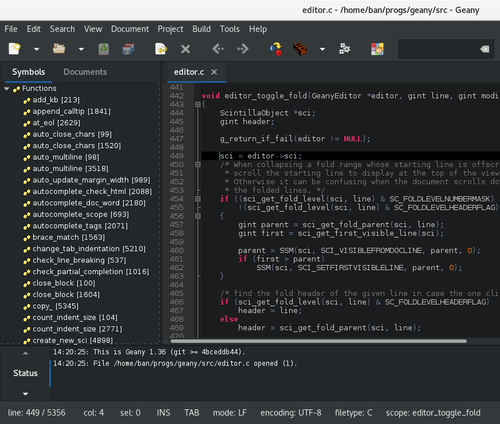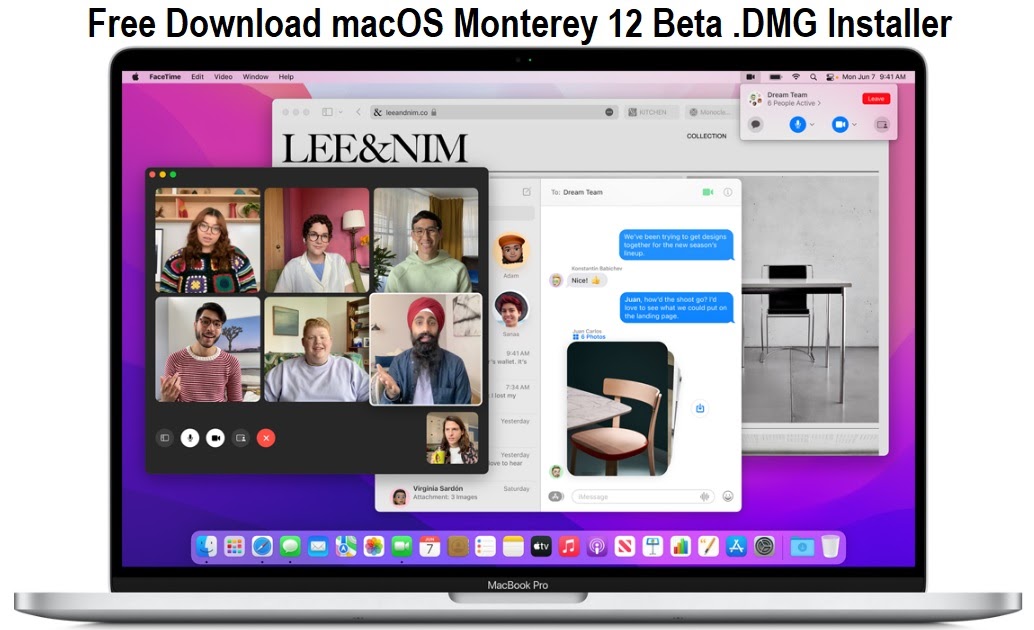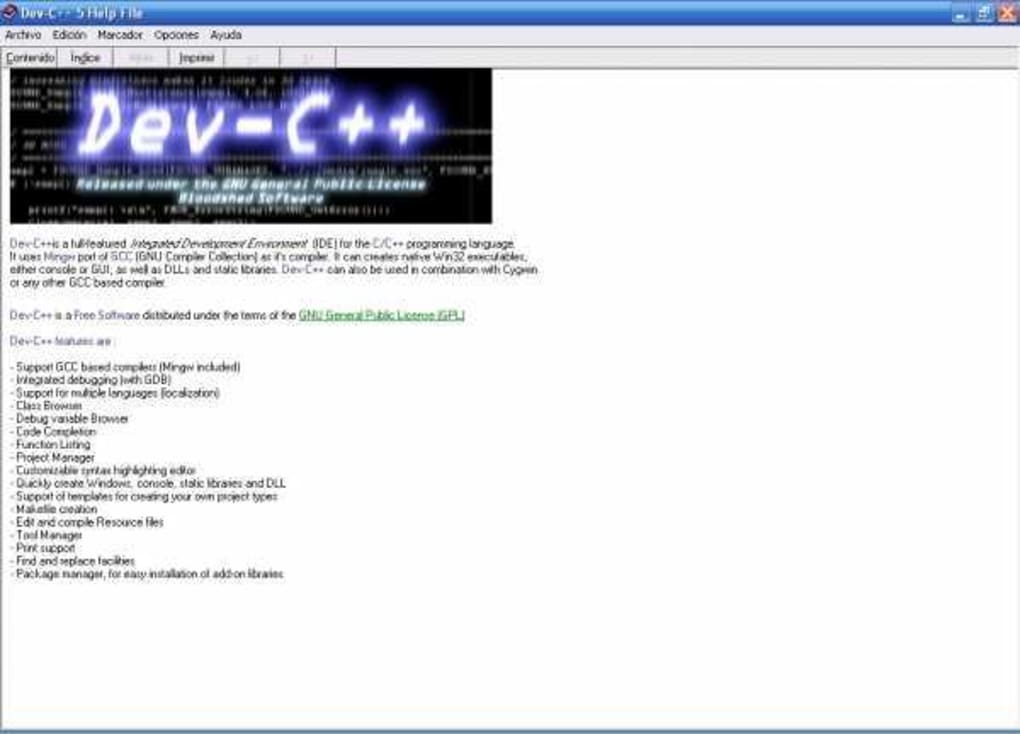NeXT's Project Builder (now Xcode) replaced it in the move to Mac OS X. Where can I get at least reference materials so I don't have to guess-and-check my way around Carbon/the System Toolbox? Google search for site:developer.apple.com 'inside macintosh. This is a free C compiler from Borland. It comes with an IDE and debugger. Last update 1 Mar. 2018 Licence Free to try OS Support Windows Downloads Total: 2,965,707 Last week: 151 Ranking #3 in C / C / C# Publisher Vaibhav Kulkarni.

| Complete roguelike tutorial using C++ and libtcod -originally written by Jice Text in this tutorial was released under the Creative Commons Attribution-ShareAlike 3.0 Unported and the GNU Free Documentation License (unversioned, with no invariant sections, front-cover texts, or back-cover texts) on 2015-09-21. |
|---|
This article is the first part of a series heavily inspired by Jotaf's excellent 'Complete roguelike tutorial using python + libtcod'.
It is intended for C++ beginners and people who want to learn how to use libtcod to create a simple roguelike video game. It covers both Linux and Windows operating systems.
The source code of this tutorial uses the C99 standard. That means that it won't compile out of the box on Visual Studio.
While an experienced C++ developer won't have much trouble to port the code to Visual Studio, if you're a C++ beginner, I strongly advise to use one of the suggested compilers/IDE.
Introduction
Why C++ ?
While being often criticized for being complex, for lacking features or for failing to enforce a single programming style, C++ is still one of the most used languages. Here are a few reasons that make it still relevant :
- the language itself is public domain. It's not owned by a private company like the more elegant Java or C#
- there are compilers that produce high-performance native binaries for almost any existing platform
- it has a great compatibility with C, which makes it easy to use with C libraries like SDL
Pre-requisite : this tutorial does not replace a C++ manual. You're supposed to have a basic knowledge of the C++ syntax and object oriented programming.
Why libtcod ?
It's easy to use and provides out of the box a lot of tools that are frequently used in a roguelike (Field of view and path finding algorithms amongst others). While browsing this tutorial, you should always have the libtcod C++ manual open. The code in this article series works with libtcod versions 1.5.1 and 1.5.2.
libtcod functions used in this article
Pre-requisites
Installing the compiler
First you need a C++ compiler. On Linux, it's easy :
On Windows, follow this tutorial : libtcod 1.5.2 documentation.

When installing Mingw, you must absolutely choose the 'Use pre-packaged repository catalogues' option. Apparently, the latest version is not working with libraries compiled with the previous one.
For OS X/macOS :
First, you need to install homebrew. Then you need to install Xcode through the App Store. Then, from the command line run the following command :
This will install gcc. Then run the following command :
Installing libtcod

All you have to do is download the library corresponding to your platform from this URL and extract it to your hard drive.
Note that the Windows/Mingw precompiled library only works with a 32 bits compiler. If you want to use a 64 bits compiler, you'll have to recompile the library.
For OS X/macOS :
Also for OS X/macOS, at the time of writing this, there is a small file change to make. In the file ../libtcod-mac/include/libtcod.h on line 109, you will need to change the <SDL.h> to <SDL/SDL.h>.
Setting up the project
Create an empty directory somewhere on your hardrive. Inside, create 3 empty directories :
Then you'll have to copy those files from the libtcod directory to your project directory :
- include/*.h
- include/*.hpp
- terminal.png
For Linux only :
- libtcod.so
- libtcodxx.so
- libtcod_debug.so
- libtcodxx_debug.so
For Windows only :
- libtcod-mingw.dll
- libtcod-mingw-debug.dll
- lib/libtcod-mingw.a
- lib/libtcod-mingw-debug.a
- SDL.dll
For OS X/macOS only :
- libtcod.dylib
- libtcodxx.dylib
- libtcod_debug.dylib
- libtcodxx_debug.dylib
First program
We'll create a very simple program, just to check that we can compile and run. Let's create a src/main.cpp file :
Dev C 2b 2b Mac Os X Downloads
main.cpp
You can compile this on Windows with (type a single line) :
If you want to get rid of the debug console when running the game from windows explorer, add the -mwindows flag. But since we're in the development phase, it's good to be able to get the program standard output.
and on Linux with :
and on OS X/macOS with :
Line by line explanation
Here we're importing all the libtcod classes declaration. Actually, before compiling the main.cpp file, the compiler will replace this line by the content of libtcod.hpp.
This is the function that will be called when the program starts. It returns an error code. 0 : no error. Any other value : an error occurred.
Here we're calling our first libtcod function to create the game window. It will contain a 80x50 console using the default font './terminal.png'. The false value indicates that we don't want to start in fullscreen mode.
initRoot is a static function inside the TCODConsole class. It's basically a global function inside the TCODConsole namespace.
Now we're starting the main game loop and we'll keep looping until the game window is closed by the player.
This line creates a key variable we can use for handling input later.
Even though we're not using keyboard input yet, we need to call checkForEvent for libtcod to process the screen redraw events.
This is the first non static function we use. We access the static 'root' variable inside the TCODConsole namespace. It's a pointer to the console bound to the main game window. We call the clear function on this console to erase everything with default color (black).
Dev C 2b 2b Mac Os X Download Mac
Now we use putChar to print an @ in the middle of the screen, using the default color (white).
This line actually generates the console image and displays it on the window.
The walking @
Now we're ready to reach the first step in any roguelike : the walking @ step :
We store the player position in two variables :
and use them to draw the @ instead of the hardcoded values :
The key variable contains everything we need to know about the keyboard input from the user. We can use it to update the player position :
Dev C 2b 2b Mac Os X Download Windows 10
That's it. Recompile the program (you can press CTRL-R and type g++ in the terminal to recall the last compilation command).